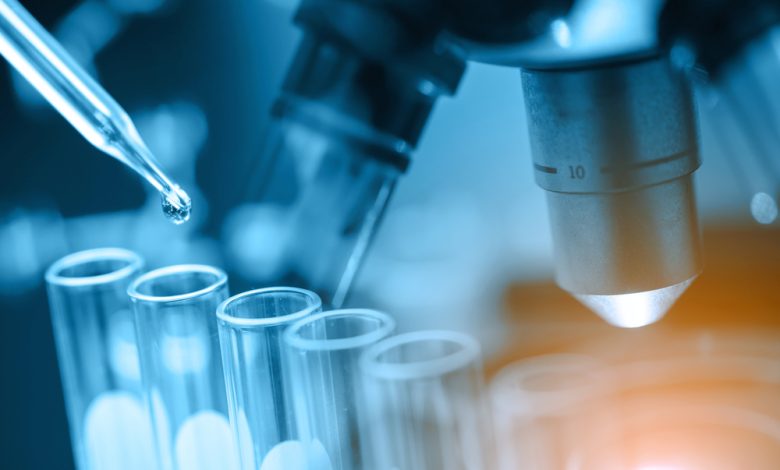8 Medical Tests To Get When You Turn 50

Prevention is always better than cure. As a person ages, the body undergoes several changes. But the question here is, how to know the changes undergoing within a body? With the advancement of medical imaging at edison imaging center, it has become easier to get a cross-sectional image of the vital internal organs of the human body. Furthermore, it makes the treatment easier.
The risk of youngsters being infected with various diseases or other skeletal damage is less than older ones. The ’50s can be a peaceful age for most people if they keep track of their health and get check-ups regularly. But an unhealthy style of living and lack of care can ruin these peaceful times. Therefore, it is better to get yourself tested when you turn 50. Below is a list of preventive medical tests recommended to help you get the required information and early warnings before the situation worsens.
Blood Tests
Blood is an essential component of the human body. Various blood cells, platelets, and serum are the primary components of the human blood. Unfortunately, many lethal viruses can infect the blood, causing the person’s death.
Blood tests are one of the most common prevention medical tests recommended as a person ages. CBC, or Complete Blood Count, helps determine the number of red and white blood corpuscles in the blood. In addition, it clarifies whether the blood cells and platelets are according to the average count. Regular blood examinations can prevent various lethal, chronic, and acute blood-associated diseases.
Blood Pressure Check
Blood pressure is the second name of hypertension. It is the pressure the blood exerts while flowing through the blood vessels. As the person ages, the risk of having high blood pressure also increases in the patient’s body. However, there are several reasons that may cause hypertension. When a person reaches 50, the risk of increased blood pressure also increases.
High blood pressure can lead to the risk of stroke and chronic heart failure. However, it also increases the risk of renal diseases and renal failure. So, in order to avoid these, it is essential to get a regular blood pressure check-up.
Eye-Sight Test
Healthy vision is no less than a blessing. However, age is a significant factor that can affect a person’s vision. For example, with age, a condition known as presbyopia is seen in people who are in their 50s. In this condition, the eye’s lens becomes flexible, blurring eyesight focus.
With the advancement in medical technology, it has become easier to test and treat various eye conditions arising in people over the age of 40. Getting eye vision tests can prevent complete eyesight loss due to treatable conditions.
Blood Sugar Test
A blood sugar test is a go-to test when a person turns 50. People above this age group are more likely to have type 2 diabetes. Untreated diabetes can give rise to several chronic and life-threatening diseases like renal failure and loss of eyesight.
The other most common prediabetes test is the HbA1c test, which measures the amount of hemoglobin in the blood. These tests help in determining and treating diabetes beforehand.
Vaccinations
The natural immune system of the human body can be the strongest and the weakest simultaneously, depending on various factors. Furthermore, the immunity of an average human being declines as he ages. But, there are always oral or intravenous alternatives to strengthen immunity. Hence, vaccinations are a common way to enhance the immune system during this age. Here are a few types of immunization shots they must get to live a healthy life:
- Tetanus
- Flu
- Mumps
- Measles
Bone Density Test
Healthy bones are necessary for a healthy lifestyle. However, as a person ages and enters their 40s, the bones start losing density. In several cases, the loss of bone density is more common in females than in men. For example, women begin losing their bone density as they step into their post 35. It is also common in pregnant people, and those injured in an accident.
A bone density test helps know a person’s bone density as he ages. In addition, it helps in the timely treatment of the bone density test. Also, it ensures how strong your bones are and what the treatment is if they are prone to fracture.
Breast Screening
Women above 40 are more likely exposed to the risk of getting breast cancer. Early detection is the key to treating breast cancer. If a woman does not have a breast cancer history, screening can help diagnose and treat breast cancer in its early stages.
Digital screening or mammography is a preventive measure that helps get a clear picture of the growth of breast cancer. Breast screening is a technique that allows the physician to detect and treat breast cancer on time. Furthermore, this test is beneficial mainly for females.
Full Hormone Profile
Hormones are an essential part of the human body. However, as the person ages, he is more likely to face a rapid fluctuation of the hormonal cycle. Women in premenopause or menopause are more likely to be affected by these fluctuations.
These fluctuations usually create havoc in women’s bodies. In such cases, a complete hormonal profile helps determine the release of various hormones in abnormal quantities. Furthermore, it helps in the early treatment of these issues.
Conclusion
Every human body goes through certain changes as it ages. However, regular physical and physiological diagnosis is necessary to live a peaceful life in the 50s. Therefore, various tests need to be done regularly. Each test helps the health experts with early detection and timely treatment of any medical disorder within the human body.
Besides the above-mentioned medical tests recommended, an aging person can conduct urine, endoscopy, and stool tests. All these tests mainly detect infections and diseases in the gastrointestinal tract of the human body.




